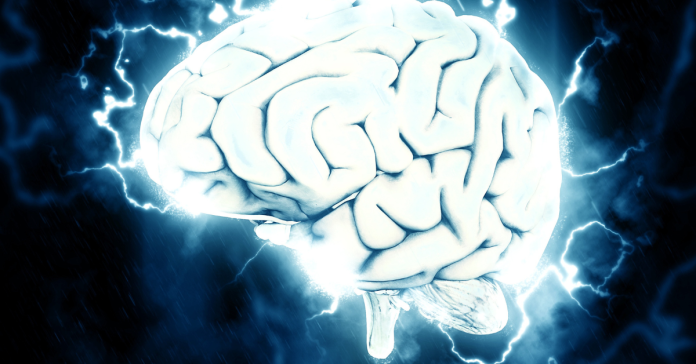A stroke occurs when the flow of blood to a portion of your brain is interrupted. The majority of them are caused by a clot or something else that obstructs the flow. These are known as ischemic strokes. Brain hemorrhage accounts for about 10% of all cases. These are known as hemorrhagic strokes.
Signs that might indicate a brain stroke:
Stroke symptoms frequently appear unexpectedly. The most prevalent symptoms include those listed below.
- Confusion, which includes difficulties speaking and understanding speech
- A headache that may be accompanied by altered awareness or vomiting
- Numbness or inability to move some parts of the face, arm, or leg, especially on one side of the body
- Issues with one or both eyes’ vision
- Having trouble walking, including feeling unsteady and uncoordinated
You are more likely to have a stroke if you are older and have a family history of strokes. You can’t go back in time or change your relatives. Despite this, scientists believe that 80 percent of strokes can be avoided. You can reach out to your Stroke specialist to undergo ischemic stroke surgery in case the surgery is required. Here are a few tips that can aid in preventing brain stroke,
Reduced blood pressure:
Strokes are mostly caused by high blood pressure. More than half of them are attributable to it. A blood pressure value of less than 120/80 indicates good health. If yours is consistently above 130/80, you may have high blood pressure, also known as hypertension.
High blood pressure, if not properly managed, can make you 4-6 times more likely to have a stroke. Because it may thicken the arterial walls, plaques made of cholesterol or other lipids may form. Breaking free of one of them can result in cerebral hemorrhage.
High blood pressure can also weaken arteries, making them more likely to burst and cause a hemorrhagic stroke. In case you are looking for brain stroke treatment reach out to the hemorrhagic stroke treatment in Coimbatore for advanced treatment.
Keeping distance from smoking:
Tobacco use doubles your risk of having a stroke. Cigarette nicotine elevates blood pressure, but carbon monoxide in smoking reduces the quantity of oxygen your blood can carry. Even breathing secondhand smoke can increase your risk of having a stroke.
Keep your heart managed:
Some strokes caused by blood clots are caused by an abnormal heartbeat known as atrial fibrillation (AFib). AFib causes blood to accumulate in your heart, where it can clot. If the clot reaches your brain, you could have a stroke. AFib can be caused by excessive blood pressure, artery plaques, heart failure, and other factors. Consult the best neurologist for stroke in Coimbatore in case you are looking for stroke treatment.
Avoid alcohol:
Too much alcohol can cause an increase in blood pressure and triglycerides. Limit yourself to no more than two drinks each day for men and one drink for women.
AFib can also be caused by excessive drinking; binge drinking (consuming 4-5 drinks in less than 2 hours) can result in an irregular heartbeat.
Manage diabetes:
High blood sugar levels can increase your chances of having a stroke by 2-4 times. Diabetes, if not well treated, can cause fatty deposits or blood clots inside your blood vessels. This can cause the ones in your brain and neck to narrow, potentially cutting off blood supply to the brain.
If you have diabetes, check your blood sugar levels regularly, take your medications as directed, and see your doctor every few months so they can monitor your levels. Reach out to a neurologist for stroke to undergo the best treatment for brain stroke.
Staying active throughout your day:
Being a couch potato can result in obesity, high cholesterol, diabetes, and high blood pressure, all of which are risk factors for stroke. So get to work. A marathon isn’t expected of you. It’s enough to do 30 minutes of exercise five days a week. You should work hard enough to make you huff and puff, but not too much. Consult your doctor before beginning to exercise. Reaching out to the top hospitals in Coimbatore at the right time can help in avoiding further complications.
Consuming healthy foods:
Healthy eating can assist you in losing weight and lowering your risk of having a stroke. Every day, eat plenty of fresh fruits and vegetables (broccoli, Brussels sprouts, and leafy greens like spinach are ideal). Choose lean proteins and meals high in fiber. Trans and saturated fats, which can clog your arteries, should be avoided. Consume less salt, and stay away from pre-packaged foods. They’re frequently high in salt, which can elevate blood pressure and trans fats.
Never ignore the snore:
Snoring that is loud and constant may indicate a sleep apnea issue, which can cause you to stop breathing hundreds of times during the night. It can increase your risk of having a stroke by preventing you from getting enough oxygen and boosting your blood pressure.
A stroke occurs when the blood supply to a part of the brain is cut off or when a blood artery in the brain breaks. In either case, the brain is damaged or killed. Long-term brain damage, disability, or even death can follow a stroke. A big stroke, which affects significant areas of the brain, can be fatal. However, for many people who have had a stroke, recovery is slow but not impossible.







